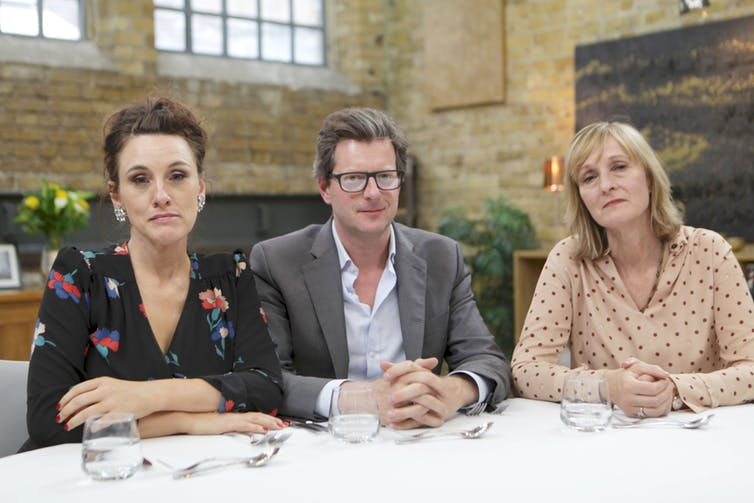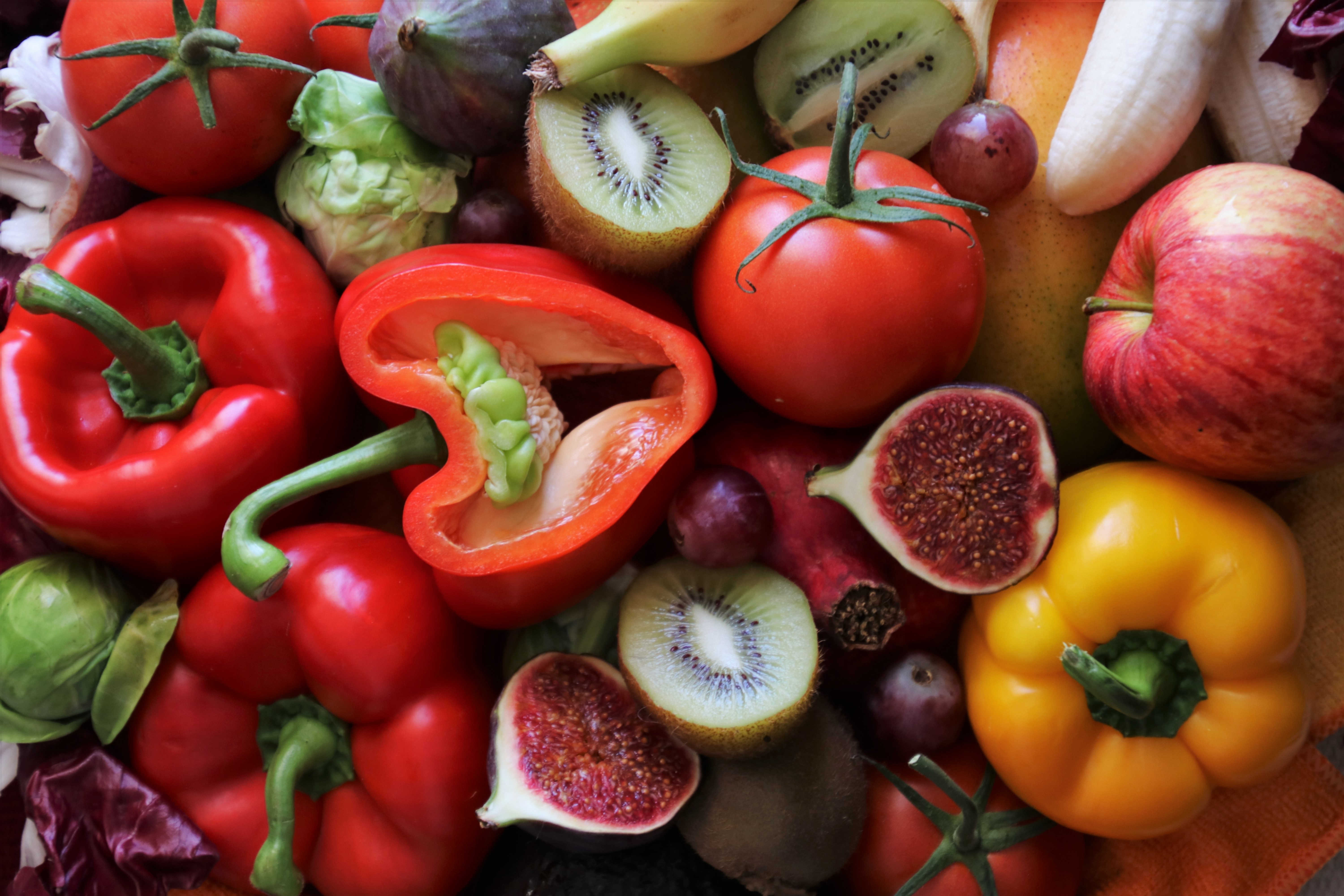Food critic William Sitwell has resigned as editor of Waitrose’s in-house magazine following a row over his astonishingly hostile response to a freelance journalist who proposed a series of articles on veganism.
A statement from the food retailer said that John Brown Media – which produces the Waitrose & Partners Food Magazine – had announced Sitwell would step down as editor of Waitrose & Partners Food magazine with immediate effect. The statement added:
In the light of William’s recent email remarks, we’ve told John Brown Media that we believe this is the right and proper move - we will be working with them to appoint a new editor for the magazine. We have had a relationship with William for almost 20 years and are grateful for his contribution to our business over that time.
The row erupted after freelance journalist Selene Nelson pitched a series on “plant-based recipes” to the magazine, given the rise in popularity of vegan products in recent years. Waitrose, like many UK supermarkets, has recently expanded its vegan product range and, as Sitwell’s own article in The Times in January 2018 noted – in less than welcoming terms – the number of vegan cookbooks available has also grown considerably.
So Nelson’s proposal seemed pitch-perfect. Sitwell’s response, however, was decidedly off-key:
How about a series on killing vegans, one by one. Ways to trap them? How to interrogate them properly? Expose their hypocrisy? Force-feed them meat? Make them eat steak and drink red wine?
Transcript
Opinion piece
Vegans: Fear and loathing
Matthew Cole and Kate Stewart:
There have been lots of stories in the media recently about veganism some have been positive, some much less so but all seemed to have sparked lively debate.
Anti-vegan media hostility isn't anything new, unfortunately. Sociological research published in 2011 showed the UK newspapers commonly ridiculed vegans and veganism. Vegans can be portrayed as angry, as militants as joyless, as faddist or as overly sentimental. As more people try veganism and meet other vegans in their daily lives the more tone-deaf these stereotypes sound. So why is it that these stereotypes can still persist? Well as sociologists, we've got a few ideas.
Is it about a guilty conscience? Vegans are often accused of trying to make non-vegans feel guilty. We would say that rather than guilt, vegans can prompt a kind of defensiveness this can range from framing non vegan habits as moderate 'I don't eat much meat' to hostility, shooting the messenger so to speak.
A common defensive response to veganism on social media is to portray vegans as humourless, as unable to take a joke but humour or at least claim to be joking rather than serious is often used in popular culture to ward off accusations of reproducing oppressive power relations. Not least of which is the oppression of other animals by humans. Framing anti veganism as humour is an attempt to stifle criticism, so often jokes can be more serious than they first seem. People tend to think that what we eat should just be a personal choice but veganism isn't just about our own dietary preferences. Veganism is an ethical imperative directed towards eliminating the exploitation and oppression of other animals. So when veganism is reduced to just a dietary preference in popular culture that has the consequence of side-lining the moral basis of veganism.
So even hostile media coverage opens up the opportunity for some more honest discussion about veganism. These lively debates in exchanges illustrate many of the issues that we've discussed but they also see many of the old stereotypes and assumptions challenged. Like many progressive social movements, veganism still seems to stimulate a lot of defensive responses.
-End of opinion piece-
As veganism is ever more routinely encountered in daily life, hackneyed media stereotypes of vegans no longer resonate as they once did. Anti-vegan media hostility isn’t anything new. Sociological research published in 2011 documented how UK newspapers discredit veganism through ridicule, with vegans variously stereotyped as angry, militant, self-denying, sentimental, faddy, or joyless. As more people try veganism, meet vegans and encounter vegan-friendly products and practices in daily life, the more tone deaf these stereotypes sound.
Sitwell’s vitriol contrasts markedly with the polite restraint of Nelson’s rejoinder, in which she ironically expressed interest “in exploring why just the mention of veganism seems to make some people so hostile”. The exchange is arguably emblematic of the contemporary plague of entitled anger that toxifies public discourse whenever entitlement is challenged, however politely.
Guilty conscience?
One aspect of threatened entitlement in a non-vegan society is the presumed right to consume the bodies of other animals. In that context, research has suggested that vegans prompt defensiveness among non-vegans by implying a failure to act on a moral issue. Unresolved guilt plays out along a continuum ranging from framing one’s non-vegan practices as “moderate” (“I don’t eat much meat”) to anger and hostility towards vegans (rhetorically shooting the messenger, the way Sitwell appears to have done). The range, style and tone of these defensive responses are wearyingly familiar to vegans.
Food practices are socially powerful markers of social and cultural identity, making actual or implied criticism of them personally and hurtfully felt. Meat-eating in particular has been closely implicated in the construction of masculine identity. Challenging the dominance of non-vegan practices threatens those social and cultural identities that are most closely dependent upon them.
My thoughts and prayers are with my sometime colleague @WilliamSitwell at this tricky time. But then I realised it’s just his turn on the DailyMail’s sidebar of shame. At least all he did was slag off a vegan. It’s not like he had a train pic nic. https://t.co/rGpqkwyT8J
— Jay Rayner (@jayrayner1) 29 October 2018
Poor taste
Criticism of Sitwell’s email led to the wheeling out of a stereotype of vegan humourlessness. We have written elsewhere about how humour is used in popular culture to retrench oppressive power relations. Framing the expression of oppressive power relations as “humour” attempts to insulate it against critique, but we should remain alert to the potency and power dynamics of such “jokes”.
Sitwell’s own initial apology denied the ethical basis of veganism itself: “I love and respect people of all appetites, be they vegan, vegetarian or meat eaters – which I show week in week out through my writing, editing and broadcasting.” Veganism here is reduced to a taste preference, or consumer disposition – just one dietary option among several – rather than an ethical imperative directed towards eliminating the human exploitation of other animals.
In his initial response, Sitwell says his previous “good behaviour” is evidence that this recent episode is not representative of his attitude and he apologises for offence taken by others, rather than his offensive action. But in doing this, he refuses to take responsibility for his own behaviour. Moreover, it provides a textbook example of a victim-blaming non-apology, in this case by using yet another anti-vegan stereotype – over-sensitivity: “I apologise profusely to anyone who has been offended or upset by this.” Vegans (the unspecified “anyone”) are implicitly primed to take offence, while Sitwell’s own actions are rhetorically positioned as intrinsically innocent (as “innocent” as a “joke”).
 William Sitwell (c) and his fellow judges Grace Dent (l) and Tracey Macleod (r) on Masterchef the Professionals.
William Sitwell (c) and his fellow judges Grace Dent (l) and Tracey Macleod (r) on Masterchef the Professionals.
The joke has cost Sitwell his editing job. But his outburst has at least opened up the opportunity for some more honest discussion about why veganism, like many other progressive social movements, stimulates such aggressive responses.
This article was originally published on The Conversation by Matthew Cole of the Open University and Kate Stewart of Nottingham Trent University. Read the original article.
Study a free course
-
Eating for the environment
Learn more to access more details of Eating for the environmentThis free course, Eating for the environment, will explore the links between food, nutrition and environmental sustainability.

Free course
8 hours
Level: 2 Intermediate
-
The science of nutrition and healthy eating
Learn more to access more details of The science of nutrition and healthy eatingExamine the science behind nutrition, covering aspects of biology, chemistry and physics as well as giving some insight into healthier eating. Reading food labels, choosing healthier foods, hydrating appropriately and understanding how we taste food will allow you to be more informed about the choices you make about the food you eat.

Free course
24 hours
Level: 1 Introductory
-
Studying mammals: Food for thought
Learn more to access more details of Studying mammals: Food for thoughtWho were our ancestors? How are apes and humans related? And where does the extinct Homo erectus fit into the puzzle? In this free course, Studying mammals: Food for thought, we will examine culture, tool use and social structure in both apes and humans to gain an understanding of where we come from and why we behave as we do. This is the tenth ...

Free course
10 hours
Level: 1 Introductory
Read a related article
-
Why isn't Doctor Who a vegan?
Watch now to access more details of Why isn't Doctor Who a vegan?The Doctor exhibits compassion to all creatures, across space and across history. Except the delicious ones, it seems. Kate Stewart and Matthew Cole wonder why.

-
Your child's phone is a junk food marketer
Watch now to access more details of Your child's phone is a junk food marketerUK rules that ban marketing of junk foods to children and young people are weak. So where do kids see junk food marketing online? Let's find out...

-
Is it true that the poorer you are, the more likely you are to eat junk food?
Read now to access more details of Is it true that the poorer you are, the more likely you are to eat junk food?New American research suggests that - perhaps aptly - there's an bulge in the middle of income strata when it comes to tucking into fast food.


Rate and Review
Rate this article
Review this article
Log into OpenLearn to leave reviews and join in the conversation.
Article reviews
today is my b.day woohoo im ten finally